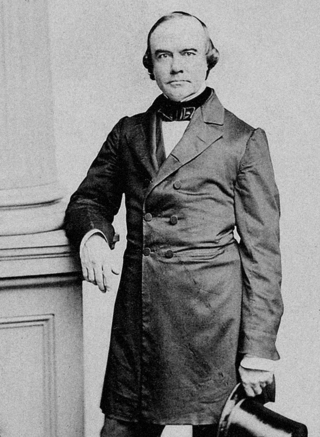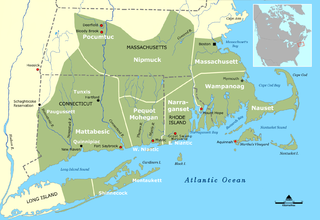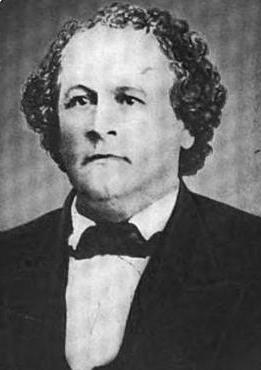
Rhode Island is a state in the New England region of the Northeastern United States. It borders Connecticut to its west;Massachusetts to its north and east;and the Atlantic Ocean to its south via Rhode Island Sound and Block Island Sound;and shares a small maritime border with New York,east of Long Island. Rhode Island is the smallest U.S. state by area and the seventh-least populous,with slightly fewer than 1.1 million residents as of 2020;but it has grown at every decennial count since 1790 and is the second-most densely populated state,after New Jersey. The state takes its name from the eponymous island,though nearly all its land area is on the mainland. Providence is its capital and most populous city.

North Kingstown is a town in Washington County,Rhode Island,United States,and is part of the Providence metropolitan area. The population was 27,732 in the 2020 census. North Kingstown is home to the birthplace of American portraitist Gilbert Stuart,who was born in the village of Saunderstown. Within the town is Quonset Point,location of the former Naval Air Station Quonset Point,known for the invention of the Quonset hut,as well as the historic village of Wickford.

Salmon Portland Chase was an American politician and jurist who served as the sixth chief justice of the United States from 1864 to his death in 1873. Chase served as the 23rd governor of Ohio from 1856 to 1860,represented Ohio in the United States Senate from 1849 to 1855 and again in 1861,and served as the 25th United States Secretary of the Treasury from 1861 to 1864 during the administration of Abraham Lincoln. Chase is therefore one of the few American politicians who have served in the highest levels of all three branches of the federal government,in addition to serving in the highest state-level office. Prior to his Supreme Court appointment,Chase was widely seen as a potential president.

The Narragansett people are an Algonquian American Indian tribe from Rhode Island. Today,Narragansett people are enrolled in the federally recognized Narragansett Indian Tribe. They gained federal recognition in 1983.

Edward Bates was an American lawyer,politician and judge. He represented Missouri in the US House of Representatives and served as the U.S. Attorney General under President Abraham Lincoln. A member of the influential Bates family,he was the first US Cabinet appointee from a state west of the Mississippi River.

Benjamin Robbins Curtis was an American lawyer and judge who served as an associate justice of the United States Supreme Court from 1851 to 1857. Curtis was the first and only Whig justice of the Supreme Court,and he was the first Supreme Court justice to have a formal law degree. He is often remembered as one of the two dissenters in the Supreme Court's infamous 1857 decision Dred Scott v. Sandford.

Noah Haynes Swayne was an American jurist and politician. He was the first Republican appointed as a justice to the United States Supreme Court.

Lincoln Carter Almond was an American attorney and politician who served as the 72nd Governor of Rhode Island from 1995 to 2003. A member of the Republican Party,he was previously the United States Attorney for the District of Rhode Island from 1969 to 1978 and again from 1981 until 1993.

The Gaspee affair was a significant event in the lead-up to the American Revolution. HMS Gaspee was a Royal Navy revenue schooner that enforced the Navigation Acts around Newport,Rhode Island,in 1772. It ran aground in shallow water while chasing the packet boat Hannah on June 9 off of Warwick,Rhode Island. A group of men led by Abraham Whipple and John Brown I attacked,boarded,and burned the Gaspee to the waterline.

William Sprague IV was the 27th Governor of Rhode Island from 1860 to 1863,and U.S. Senator from 1863 to 1875. He participated in the First Battle of Bull Run during the American Civil War while he was a sitting Governor.

Francesco Caprio is an American retired judge and politician who served as the chief judge of the municipal court of Providence,Rhode Island,and chairman of the Rhode Island Board of Governors for Higher Education. His judicial work is televised on the program Caught in Providence. He has also made appearances in the series Parking Wars, adjudicating several cases of traffic violations.

The Abraham Lincoln Bicentennial Commission (ALBC) was the congressionally created,14-member federal commission focused on planning and commemorating the 200th birthday of the United States' 16th president on February 12,2009. The commission served for ten years,from 2000 to 2010. Its official successor organization,announced in 2011 with an expanded board and broadened mission,is the Abraham Lincoln Bicentennial Foundation.

Brigadier General William Ward Orme (1832-1866) was born in Washington,D.C. in 1832. He moved to Bloomington,Illinois,in McLean County,prior to 1860 where he practiced law in the law firm of Swett &Orme. His partner was Leonard Swett. While practicing law in Illinois he caught the attention of Abraham Lincoln who called Orme the most promising lawyer in Illinois.
Wingate Hayes (1823–1877) was Speaker of the Rhode Island House of Representatives and U.S. District Attorney for the district of Rhode Island during the American Civil War.
Justice Williams may refer to:

Jonathan Russell Bullock was a justice of the Supreme Court of Rhode Island and a United States district judge of the United States District Court for the District of Rhode Island.

David Davis was an American politician and jurist who was a U.S. senator from Illinois and associate justice of the United States Supreme Court. He also served as Abraham Lincoln's campaign manager at the 1860 Republican National Convention,engineering Lincoln's successful nomination for president by that party.

The Narragansett land claim was one of the first litigations of aboriginal title in the United States in the wake of the U.S. Supreme Court's landmark Oneida Indian Nation of New York v. County of Oneida (1974),or Oneida I,decision. The Narragansett claimed a few thousand acres of land in and around Charlestown,Rhode Island,challenging a variety of early 19th century land transfers as violations of the Nonintercourse Act,suing both the state and private land owners.

Charles H. Constable was an American attorney,Illinois State Senator,judge,and real estate entrepreneur. He was raised in Maryland and graduated from the University of Virginia with a degree in Law. After settling in Illinois,he married the oldest daughter of Thomas S. Hinde,a pioneer and real estate developer. Initially,he practiced law in Mount Carmel,Illinois,the town founded by Hinde. He managed the business and real estate affairs of his father-in-law until Hinde died in 1846.

















